Assessment of neuroendocrine dysfunction following traumatic brain injury.
Por um escritor misterioso
Last updated 24 março 2025

A screening protocol adapted for selected patients at risk for endocrine problems is described, and physicians should be aware of the importance of neuroendocrine dysfunction following TBI. Posttraumatic neuroendocrine pathology may be a clinically significant complication following traumatic brain injury TBI. Metabolic abnormalities are described after TBI in two cases. A 21 year old male injured in a motor vehicle accident admitted in a minimally responsive condition presented with fluctuating high sodium levels, undetectable serum testosterone, and depressed cortisol and thyroid function. Imaging revealed near complete avulsion of the pituitary stalk leading to panhypopituitarism. A 38 year old male admitted for occipital skull fractures and brain contusions presented with hypona tremia and low serum testosterone. Both patients required hormonal replacement and correction of electrolyte abnormalities. A screening protocol adapted for selected patients at risk for endocrine problems is described. While neuroendocrine screening is not advocated in all TBI patients, physicians should be aware of the importance of neuroendocrine dysfunction following TBI.
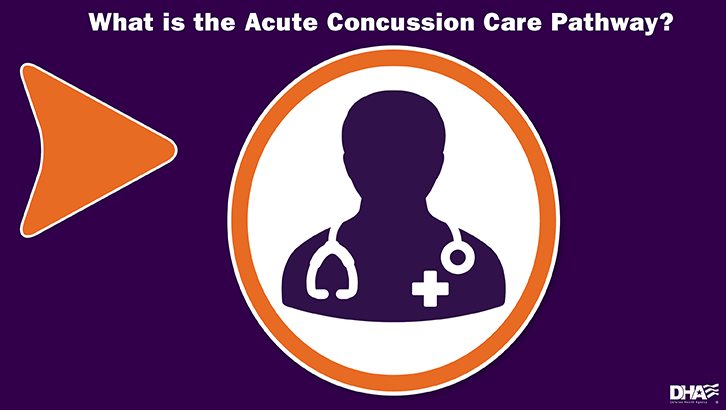
TBI Resources for Medical Providers
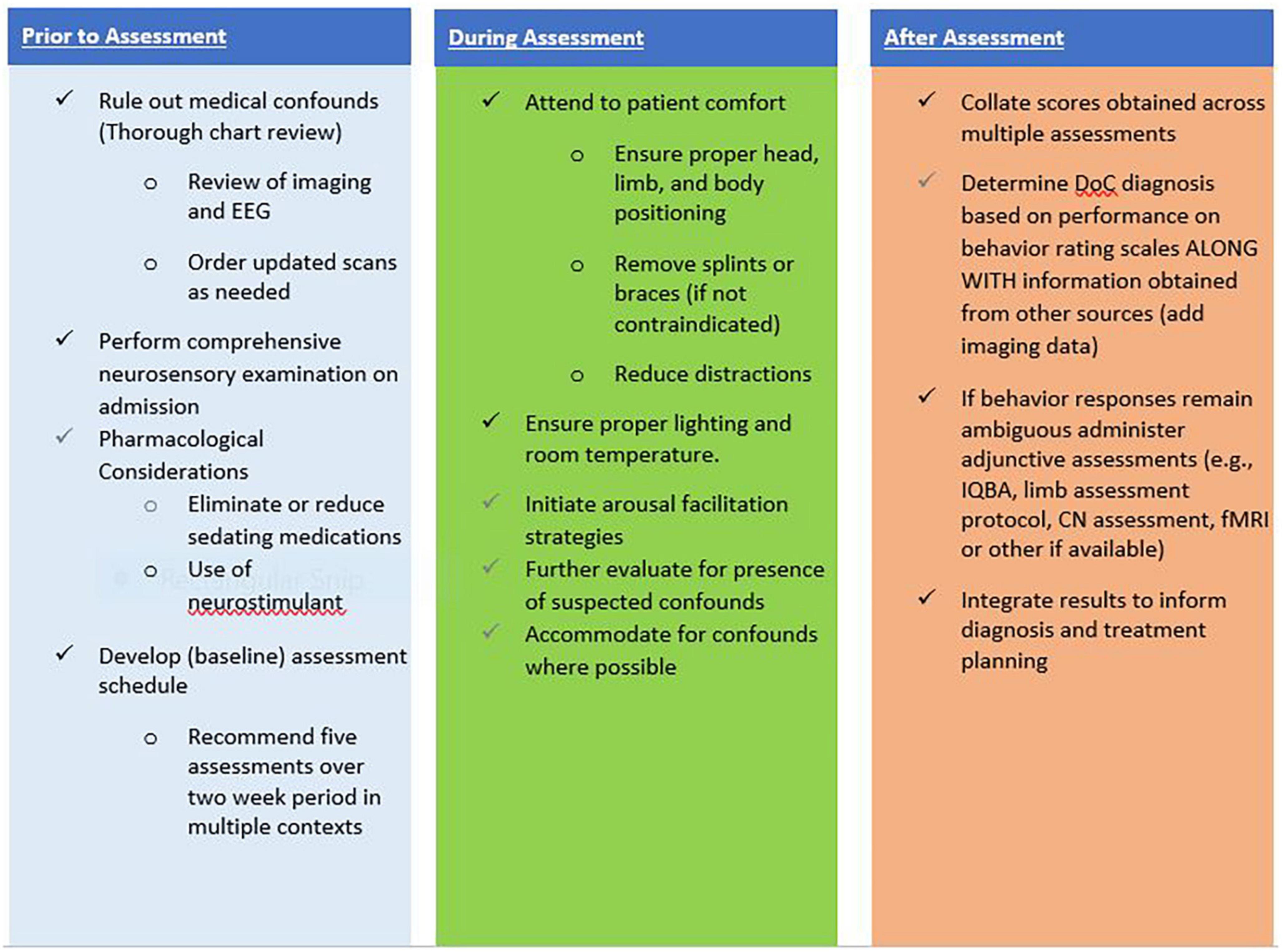
Frontiers Clinical application of recommendations for neurobehavioral assessment in disorders of consciousness: an interdisciplinary approach
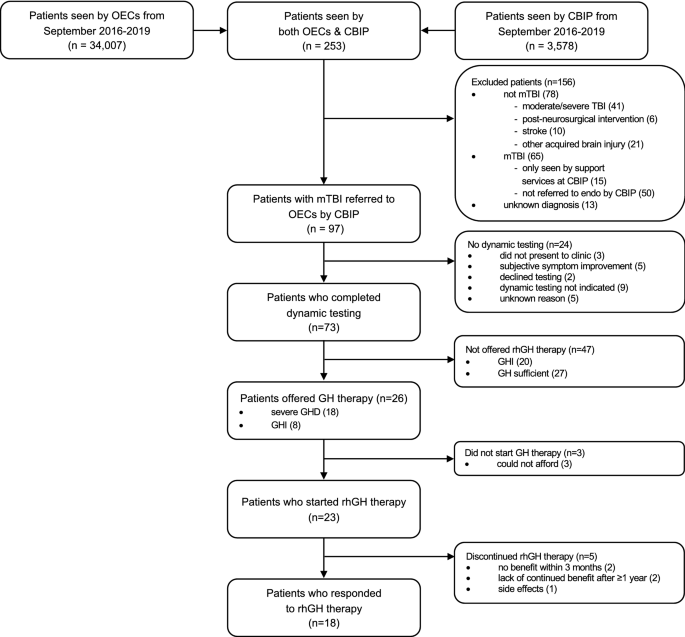
Growth hormone deficiency testing and treatment following mild traumatic brain injury
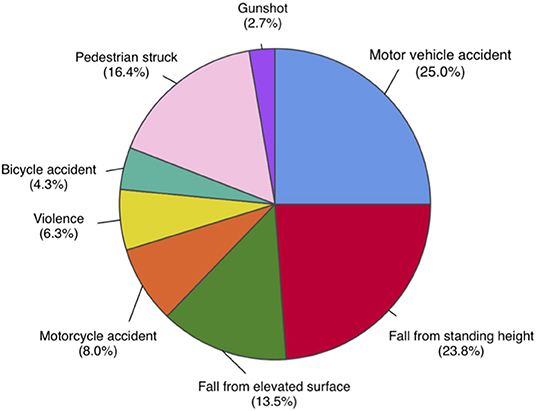
Frontiers Agitation Following Severe Traumatic Brain Injury Is a Clinical Sign of Recovery of Consciousness
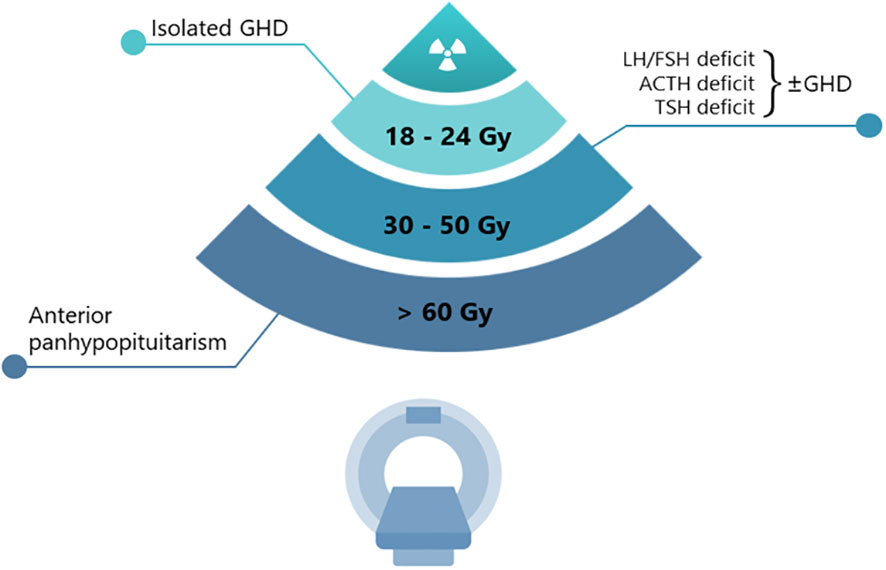
Frontiers Isolated anterior pituitary dysfunction in adulthood
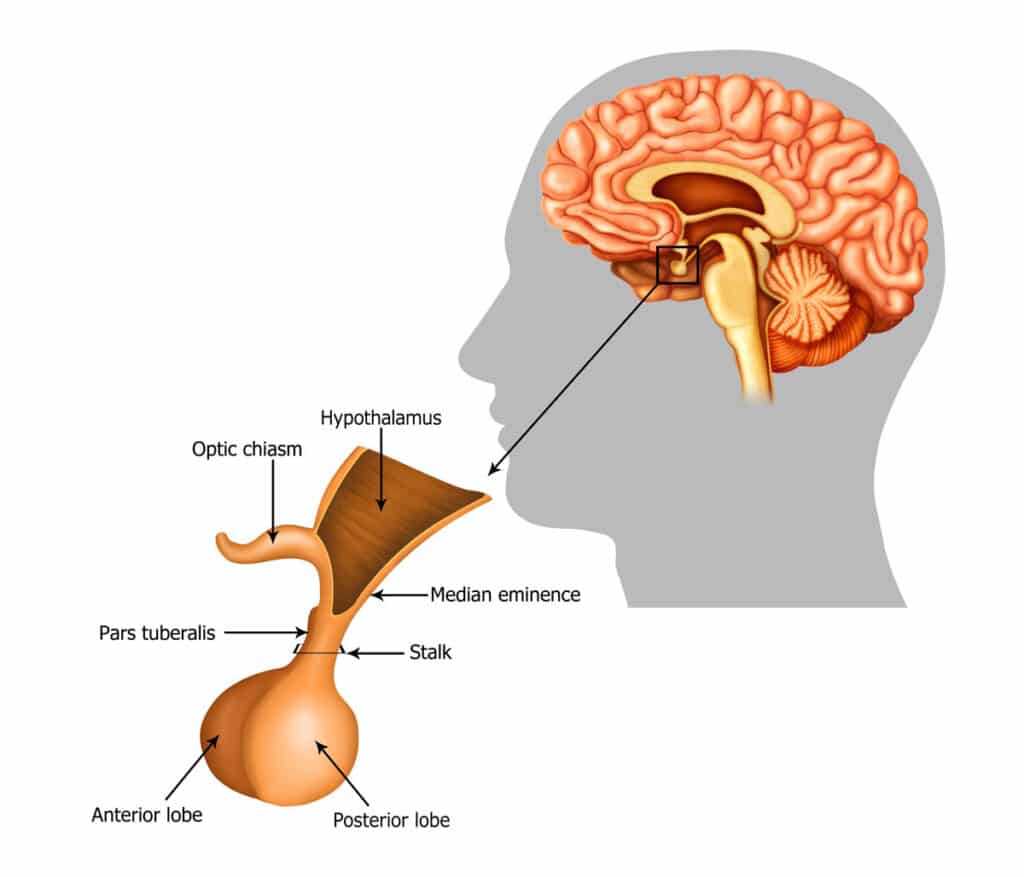
How Does Brain Trauma Affect Brain Hormones? - Elizabeth Sandel, M.D.

Brain Hypoxia Is Associated With Neuroglial Injury in Humans Post–Cardiac Arrest
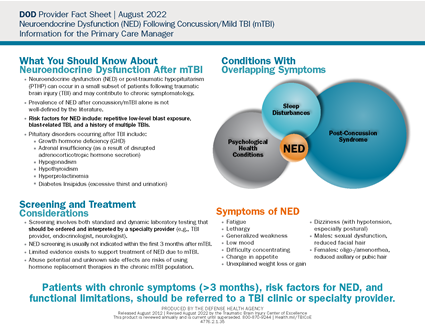
Neuroendocrine Dysfunction (NED) Following Concussion/Mild Traumatic Brain Injury (mTBI): Information for the Primary Care Manag

Neuroendocrine Dysfunction in the Acute Setting of Penetrating Brain Injury: A Systematic Review - ScienceDirect

Assessment of neuroendocrine dysfunction following traumatic brain injury.

Metabolic disorders on cognitive dysfunction after traumatic brain injury: Trends in Endocrinology & Metabolism

PDF) Traumatic Injury to the Brain and Endocrine Evaluation of the Anterior Pituitary a Year After the Event (The TRIBE Study)
Recomendado para você
-
 brain test nível 29524 março 2025
brain test nível 29524 março 2025 -
 Brain Test Level 295 Walkthrough24 março 2025
Brain Test Level 295 Walkthrough24 março 2025 -
Dangamevideos24 março 2025
-
 Emoji DOP:Brain Matching Game for Android - Download24 março 2025
Emoji DOP:Brain Matching Game for Android - Download24 março 2025 -
 Color Web on the App Store24 março 2025
Color Web on the App Store24 março 2025 -
 Logic Puzzle Game with Matches. Need To Move only 1 Matchstick To Make Equation Correct. Solve Mathematical Example Stock Vector - Illustration of exercise, logical: 16180814324 março 2025
Logic Puzzle Game with Matches. Need To Move only 1 Matchstick To Make Equation Correct. Solve Mathematical Example Stock Vector - Illustration of exercise, logical: 16180814324 março 2025 -
 Brain Test Level 295 We need 5 actors - Frenemy24 março 2025
Brain Test Level 295 We need 5 actors - Frenemy24 março 2025 -
 Pin on random 🤣24 março 2025
Pin on random 🤣24 março 2025 -
 BRAIN TEST NÍVEL 295 EM PORTUGUÊS24 março 2025
BRAIN TEST NÍVEL 295 EM PORTUGUÊS24 março 2025 -
braintest level 295|TikTok Search24 março 2025
você pode gostar
-
 Combo Portal Fruit Easy 30M + God Human + CDK (Blox Fruits Bounty24 março 2025
Combo Portal Fruit Easy 30M + God Human + CDK (Blox Fruits Bounty24 março 2025 -
Stylish Bangs Black Hair24 março 2025
-
 Blue Lock Vol 12 Yusuke Nomura Manga Set English Version Comics24 março 2025
Blue Lock Vol 12 Yusuke Nomura Manga Set English Version Comics24 março 2025 -
 Agentes de Viagens de Brasília participam do “Portas Abertas” da24 março 2025
Agentes de Viagens de Brasília participam do “Portas Abertas” da24 março 2025 -
 GIF files: How to create, edit and open them24 março 2025
GIF files: How to create, edit and open them24 março 2025 -
 number24 Rugby Anime Reveals Cast, Characters, More Staff, January24 março 2025
number24 Rugby Anime Reveals Cast, Characters, More Staff, January24 março 2025 -
 Kit Sistema de Câmera AHD DVR Segurança, Cor Outdoor, Night Vision, Vigilância CCTV, Face Video Recorder, 4K, 8MP, 16CH, Full HD - AliExpress24 março 2025
Kit Sistema de Câmera AHD DVR Segurança, Cor Outdoor, Night Vision, Vigilância CCTV, Face Video Recorder, 4K, 8MP, 16CH, Full HD - AliExpress24 março 2025 -
 Yandere Simulator- Osana Najimi | Art Board Print24 março 2025
Yandere Simulator- Osana Najimi | Art Board Print24 março 2025 -
 Battle Action Intensifies in Val x Love TV Anime Trailer (NSFW-ish) - Crunchyroll News24 março 2025
Battle Action Intensifies in Val x Love TV Anime Trailer (NSFW-ish) - Crunchyroll News24 março 2025 -
![How to get ALL 16 CHARACTER SKINS FAST in SONIC SPEED SIMULATOR! [ROBLOX]](https://i.ytimg.com/vi/XgcnV55-kS0/maxresdefault.jpg) How to get ALL 16 CHARACTER SKINS FAST in SONIC SPEED SIMULATOR! [ROBLOX]24 março 2025
How to get ALL 16 CHARACTER SKINS FAST in SONIC SPEED SIMULATOR! [ROBLOX]24 março 2025

